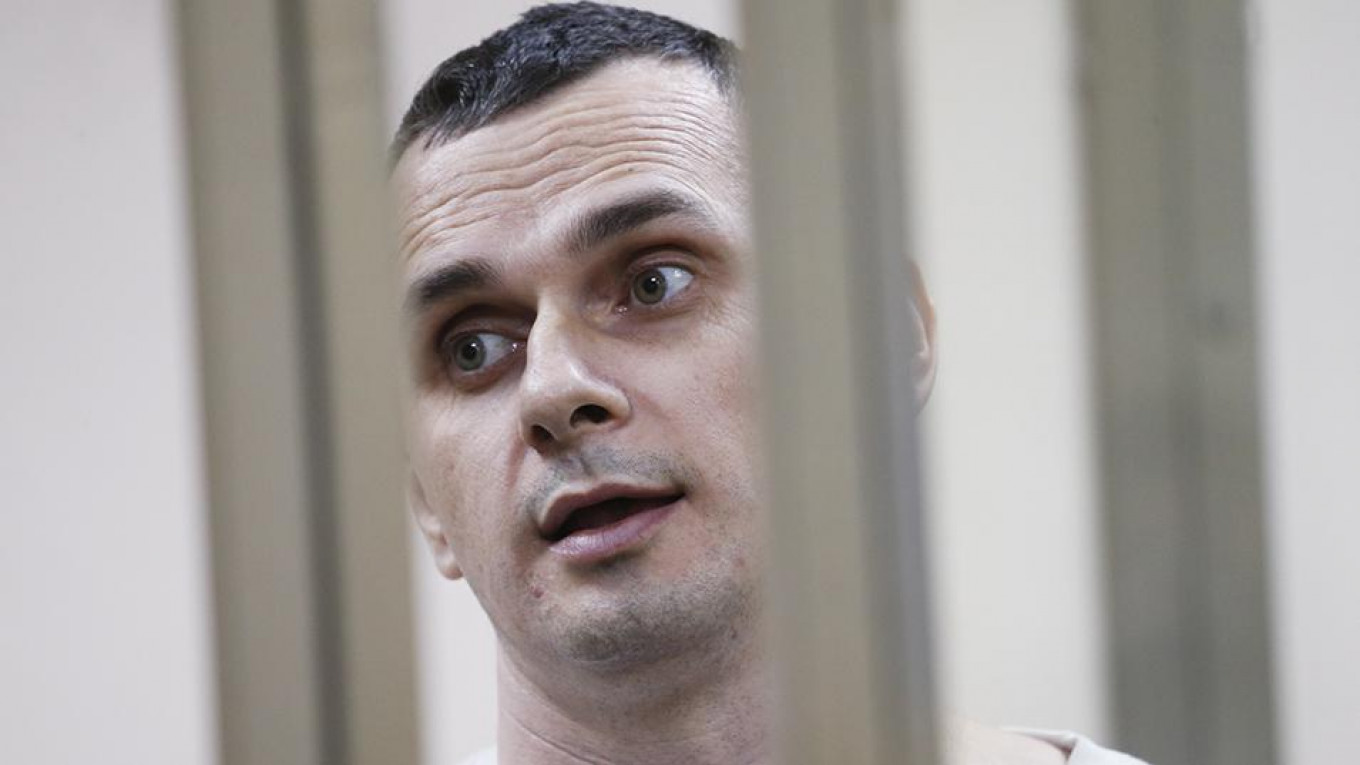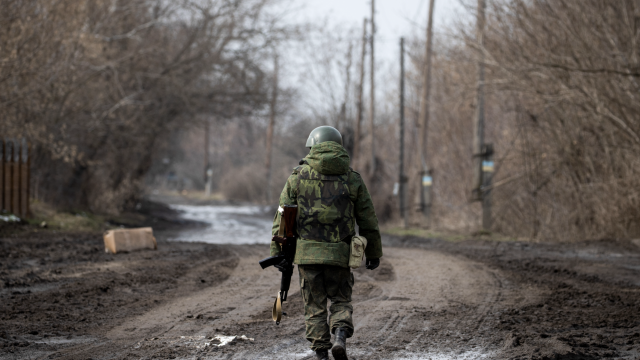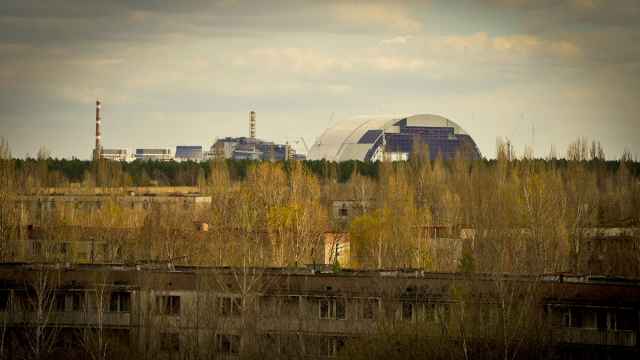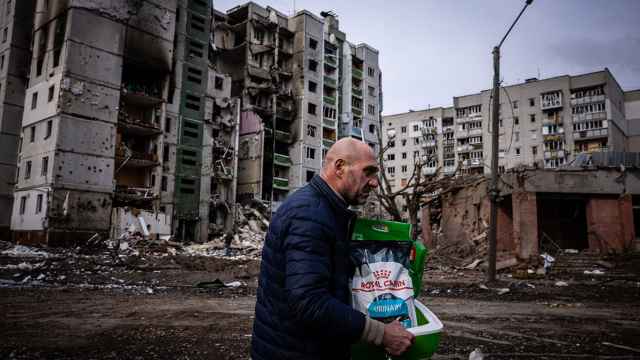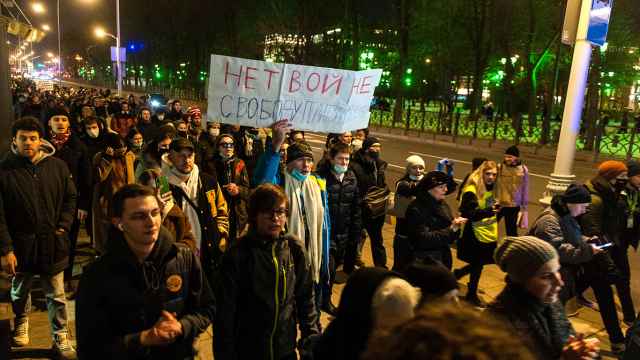The family of Oleg Sentsov pleaded with President Vladimir Putin to secure his release from a Russian jail as the most severe symptoms of his month-long hunger strike are expected to kick in around the start of the FIFA World Cup.
Sentsov announced an indefinite hunger strike demanding the release of Ukrainian political prisoners in Russia on May 17, one month ahead of the football tournament that begins in Russia this Thursday. The Ukrainian filmmaker is in year three of a 20-year sentence on charges of plotting terrorist and arson attacks in Crimea after its annexation from Ukraine.
“We have very little time left and I really hope that Putin will take the decision to release him,” Natalia Kaplan, Sentsov’s cousin, told The Guardian on Sunday.
Kaplan’s request came a day after Putin held phone talks with Ukrainian President Petro Poroshenko, whose office said the two leaders discussed a possible prisoner exchange. During his annual call-in show on Thursday, Putin said he has “not yet thought about” a swap involving Sentsov.
The 41-year-old director’s lawyer, Dmitry Dinze, said his client has lost 8 kilograms since beginning his hunger strike and is at risk of kidney failure. “Things could deteriorate at any moment but people say the 30th day is when it gets really dangerous,” he told The Guardian.
In a letter to supporters published over the weekend, Sentsov wrote he was recently transferred to a medical unit in a high-security prison in the Arctic town of Labytnangi, where he is under constant medical surveillance.
“Everyone understands that I won’t back down,” he said. “For his fourth week in flight, the pilot feels fine.”
A Message from The Moscow Times:
Dear readers,
We are facing unprecedented challenges. Russia's Prosecutor General's Office has designated The Moscow Times as an "undesirable" organization, criminalizing our work and putting our staff at risk of prosecution. This follows our earlier unjust labeling as a "foreign agent."
These actions are direct attempts to silence independent journalism in Russia. The authorities claim our work "discredits the decisions of the Russian leadership." We see things differently: we strive to provide accurate, unbiased reporting on Russia.
We, the journalists of The Moscow Times, refuse to be silenced. But to continue our work, we need your help.
Your support, no matter how small, makes a world of difference. If you can, please support us monthly starting from just $2. It's quick to set up, and every contribution makes a significant impact.
By supporting The Moscow Times, you're defending open, independent journalism in the face of repression. Thank you for standing with us.
Remind me later.


